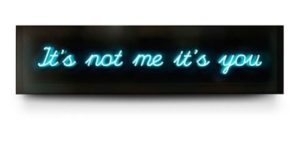Standing in the drugstore trying to choose which skincare products to go with is a bit like dating, isn’t it?

Finding the perfect match to your skin seems to be a constant struggle; you swipe right and try the latest face mask one week, only to kick it to the curb a few days later because it gave you unwanted breakouts.
Then you go with the moisturizer your roommate has been raving about (AKA itching to set you up with), only to be disappointed once again because it leaves your skin feeling greasy.
This Valentine’s Day, we may not be able to help you find your perfect mate IRL, but we can help you find your skincare soulmate.
3 Dark Secrets Hiding In Your Current Skincare:

You never want any deep, dark secrets looming in your relationship, just like you never want any bad ingredients slipping their way into your skincare. These are the 3 worst offenders, and if you see them on a product label, make sure to ghost it right away!
1. Parabens
Parabens are low-cost preservatives used in upwards of 85% of skincare and cosmetics, according to the American Chemical Society, with the FDA stating the most common parabens to be methylparaben, propylparaben and butylparaben.
Since parabens are meant to prevent bacteria from forming in products, what’s the problem? Studies show that parabens have a way of mimicking estrogens in the body which can lead to all sorts of skin and health problems like cancer and allergic reactions in some people.
2. Petroleum & Petro-chemicals
Commonplace in skincare and cosmetics, derivatives of petroleum are not only harmful to the environment, but they can cause havoc on your skin. With the ability to generate 1,4-dioxane, an unnecessary substance known to contribute to cancer, petroleum can be attributed to excessive sweating which can then lead to clogged pores and acne.

Petroleum derivatives are present in many cosmetic products probably sitting on your vanity right now, from anti aging moisturizers, to mascara, to lip sticks and lip balms which commonly contain pore suffocating properties. Instead, opt for a natural, vitamin-infused beeswax lip balm.
Here is a list of petroleum ingredients to look out for on your product labels:
- Benzene
- Butanol and words with “butyl,” such as butylene glycol and butyl alcohol
- Diethanolamine
- Ethanolamine
- Ethanol and words with “ethyl,” such as ethyl alcohol, ethylene oxide, ethylene dichloride, ethylene-diamine-tetracetatic acid (EDTA), ethylene glycol
- Fragrance or parfum, as nearly all chemical used in fragrances are derived from petroleum
- Methanol and words with “methyl,” such as methyl alcohol, methylparaben, and methylcellulose
- Mineral oil
- Parabens (e.g., propylparaben, methylparaben, butylparaben, benzylparaben)
- Paraffin wax
- Propyl-containing substances such as isopropyl alcohol, propylene glycol, cocamidopropyl betaine
- Toluene
3. Sulfates
Used as the foaming agent in shampoos and face washes, SLSs and SLESs (Sodium Lauryl Sulphate and Sodium Laureth Sulphate), have been known to strip the skin and hair from its natural oils causing dryness, aging, flaky skin, and even acne.

Not to mention, sulfates are also sometimes contaminated with 1,4-dioxane, so sticking with natural foaming cleansers is best.
So now you’re that much closer to knowing exactly what to look for when you’re searching for skincare that’ll perfectly suit your skin. For maximum results, make sure to always use a natural skincare regimen that is a love connection for your skin type.